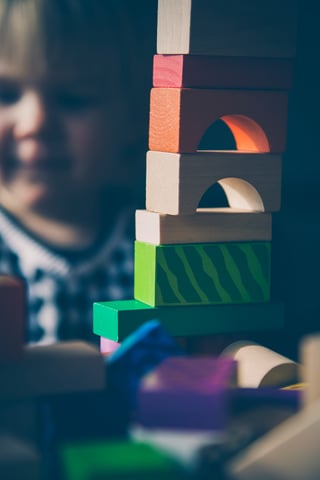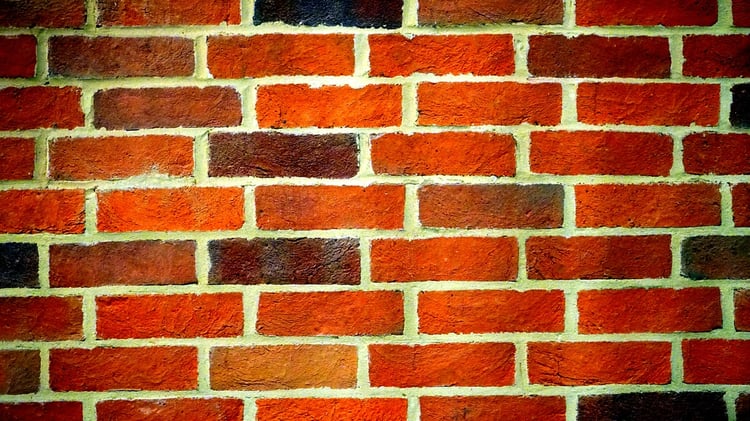Walk into any Early Childhood Centre, or family play room and you're almost guaranteed to see building blocks. They may come in a variety of shapes, sizes and colours (and it's best they do!) but the important role they play in a child's development is universal.

Chief Publishing Officer and Editor in Chief of NAEYC, Derry Koralek polled staff and consulting editors of Young Children to find out why block play was capable of teaching such important lessons.
The benefits included accidental and intentional problems solving, imaginative exploration, self-expression, early mathematics, social development, creativity, science and self-esteem.
You can learn a lot about a child's temperament from block play. There disposition tends to surface when confronted with a stack of blocks before them. Will they build carefully, taking on the challenge of construction. Or will they build quickly and enjoy the sight of the blocks cascading down with a well directed smack?
As an adult there can be a sense of trepidation when a child tackles a block-building project. Many of the outcomes result in additional headaches! And as the blocks stack higher the headache potentially becomes bigger.
A tall stack of blocks will either tumble, to the dismay of the careful builder. Or it will attract the kid that simply loves to see the blocks fall, resulting in tears from the builder.
The social experiment that comes with building blocks is one of the main reasons why they are a simple toy that can build brilliant kids.

Block play doesn't necessarily end as they grow either. LEGO creates a world of endless possibilities surrounding blocks and the computer game Minecraft is almost a retro approach to modern block play. When the child becomes an adult those blocks may turn into bricks, should they choose a building profession.
The nature of block play inspires creative freedom. Give two kids the same set of blocks and you'll rarely see them create the same construction.
Natural wood is an excellent material for building blocks. Durable, safe and easy to keep clean they are ideal for indoor and outdoor play.
If your Early Childhood Centre's blocks are looking like they've seen better days, or if you want to encourage more children to develop through block play, have a look at our great range of block toys.
Source - NAEYC article '10 things children learn from block play' http://www.naeyc.org/yc/10_things_children_learn_block_play



